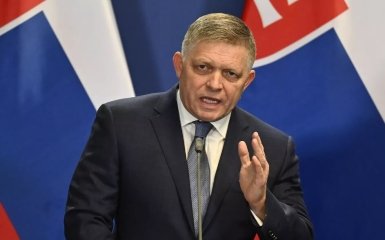On September 25, Russia launched 32 kamikaze drones over Ukraine. Our air defense destroyed 28 drones, as well as 4 downed Kh-59/69 guided air missiles.
Points of attention
- Ukrainian air defense destroyed 28 drones and 4 guided air missiles during the Russian attack on Ukraine.
- The attack of the Russian Federation covered several regions of Ukraine, in particular Kharkiv Oblast, Odesa Oblast, and the Black Sea.
- The Air Force of Ukraine came to the defense and repelled the attack of the Russian invaders, using various types of troops and units.
- As a result of the air battle, 28 drones and 4 missiles were shot down, while four enemy drones were lost in different regions of Ukraine.
- It is also worth noting that the Russian Federation previously attacked the city of Zaporizhzhia, which resulted in injuries and damage to private houses.
The Air Force revealed the details of the Russian attack on Ukraine
According to the military, the Russian invaders attacked:
Kharkiv Oblast with a S-300 anti-aircraft guided missile and three missiles of an unspecified type
Odesa — by four Kh-59/69 guided air missiles from the airspace of the Black Sea, as well as 32 strike UAVs of the Shahed type (launch areas: Primorsko-Akhtarsk, Kursk — RF).
Air force, anti-aircraft missile forces, mobile fire groups and units of the Defense Forces of Ukraine were involved in repelling the enemy's air attack.
As a result of the anti-aircraft battle, 28 attack UAVs and four Kh-59/69 guided air missiles were shot down.
Another four enemy drones were lost in location in several regions of Ukraine (information about casualties or destruction was not received).
Anti-aircraft defense worked in Dnipropetrovsk, Kharkiv, Kyiv, Cherkasy, Kirovohrad, Sumy, Poltava, Mykolaiv, Odesa and Kherson regions.
The Russian Federation attacked Zaporizhzhia again on September 24
On September 24, after 21:00, the Russian army carried out a series of airstrikes on the city of Zaporizhzhia.
As a result of the incident, seven people were injured, three of them are in the hospital. Four of the victims refused hospitalization.
According to the State Emergency Service, one man was rescued from the rubble.
Search and rescue operations have been completed. Regarding the consequences and the number of damaged private houses, the information is being clarified, — the State Emergency Service added.
A total of 35 rescuers and 8 pieces of equipment were involved in the liquidation. Police officers, explosives technicians, volunteers of the Rapid Response Unit of the Red Cross Society of Ukraine and other specialized services of the city worked at the scene.









